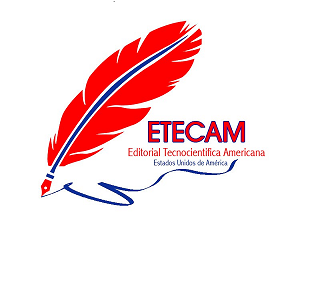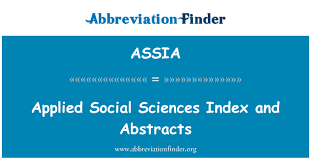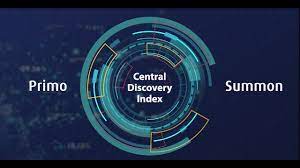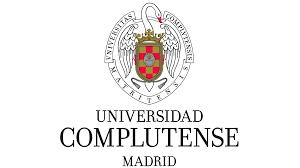Neurodidactics and its incidence in the development of mathematical logical thinking in seventh-grade students
DOI:
https://doi.org/10.51736/sa.v7i3.336Keywords:
neurodidactics, mathematical logical thinking, educational strategy, seventh grade students, impact assessmentAbstract
The study conducted stands out for its focus on the implementation of a neurodidactic strategy for the development of mathematical logical thinking in seventh-grade students, thus addressing a topic of relevance in the current educational environment. The main objective was to evaluate the impact of this strategy on the development of specific cognitive skills. The sample consisted of 24 seventh-grade students from the El Angel Educational Unit, selected by simple random sampling. A pretest-posttest design with a single group was applied to evaluate the effect of the strategy, collecting data through exploratory surveys, pretest and posttest tests, and evaluations of the implemented strategy. A mixed research approach was used to obtain a complete understanding of the phenomenon studied. The results revealed significant progress in several dimensions of mathematical logical thinking after the implementation of the strategy, supporting its effectiveness. Evaluation of the strategy by experts in the educational field also highlighted its value in promoting meaningful learning and the development of cognitive skills in students. This study contributes to the body of knowledge on the integration of neuroscience in education and highlights the importance of adopting evidence-based pedagogical approaches to improve academic achievement in mathematics.
Downloads
References
Ansari, D., & Lyons, I. M. (2016). Cognitive neuroscience and mathematics learning: how far have we come? Where do we need to go? ZDM, 48, 379-383.
Artemenko, C., Soltanlou, M., Bieck, S. M., Ehlis, A. C., Dresler, T., & Nuerk, H. C. (2019). Individual differences in math ability determine neurocognitive processing of arithmetic complexity: A combined fNIRS-EEG study. Frontiers in Human Neuroscience, 13, 227.
Chávez, L. M. C., & Baca, R. L. C. (2020). Neurodidáctica como alternativa innovadora para optimizar el aprendizaje. Revista Varela, 20(56), 145-157.
Creswell, J. W., & Plano Clark, V. L. (2018). Designing and conducting mixed methods research (3rd ed.). Sage.
De Smedt, B., & Grabner, R. H. (2016). Potential applications of cognitive neuroscience to mathematics education. ZDM, 48, 249-253.
Hernández , R., Fernández , C., & Baptista , P. (2014). Metodología de la Investigación. McGraw-Hill.
Indriati, D. (2018, April). Profile of mathematical reasoning ability of 8th grade students seen from communicational ability, basic skills, connection, and logical thinking. In Journal of Physics: Conference Series (Vol. 1008, No. 1, p. 012078). IOP Publishing.
Lein, A. E., Jitendra, A. K., & Harwell, M. R. (2020). Effectiveness of mathematical word problem solving interventions for students with learning disabilities and/or mathematics difficulties: A meta-analysis. Journal of Educational Psychology, 112(7), 1388.
Lekati, E., & Doukakis, S. (2022, October). Neuroeducation and Mathematics: The Formation of New Educational Practices. In Worldwide Congress on “Genetics, Geriatrics and Neurodegenerative Diseases Research" (pp. 91-96). Cham: Springer International Publishing.
Lema, A. M. S., & Goitia, J. M. G. (2023). El desarrollo del razonamiento lógico matemático en la enseñanza general básica superior. Revista Panamericana de Pedagogía, (35), 152-165.
Mareschal, D. (2016). The neuroscience of conceptual learning in science and mathematics. Current Opinion in Behavioral Sciences, 10, 114-118.
Piddubna, O., Maksymchuk, A., Lytvychenko, D., Revutska, O., Moskalenko, M., & Sopina, O. (2023). Implementing Neuropedagogical Innovation in Schools: From Theory to Practice. BRAIN. Broad Research in Artificial Intelligence and Neuroscience, 14(2), 37-58.
Privitera, A. J. (2021). A scoping review of research on neuroscience training for teachers. Trends in Neuroscience and Education, 24, 100157.
Privitera, G. J., & Ahlgrim-Delzell, L. (2018). Research methods for education. Sage Publications.
Rivera-Rivera, E. (2019). El neuroaprendizaje en la enseñanza de las matemáticas: la nueva propuesta educativa. Entorno, (67), 157-168.
Thomas, M. S., Ansari, D., & Knowland, V. C. (2019). Annual research review: Educational neuroscience: Progress and prospects. Journal of Child Psychology and Psychiatry, 60(4), 477-492.
Schneider, M., Krick, C. M., & Appel, M. (2016). Does EEG reveal differential effects of quantity training and reasoning training in children with mathematical difficulties? Frontiers in Psychology, 7, 1976.
Sheromova, T. S., Khuziakhmetov, A. N., Kazinets, V. A., Sizova, Z. M., & Borodianskaia, E. A. (2020). Learning Styles and Development of Cognitive Skills in Mathematics Learning. Eurasia Journal of Mathematics, Science and Technology Education, 16(11).
Published
How to Cite
Issue
Section
License
Copyright (c) 2024 Marina Genoveva Cortez Torres, Jemina Jael Viejó Cornejo, Wilber Ortiz Aguilar

This work is licensed under a Creative Commons Attribution-NonCommercial-ShareAlike 3.0 Unported License.






















































